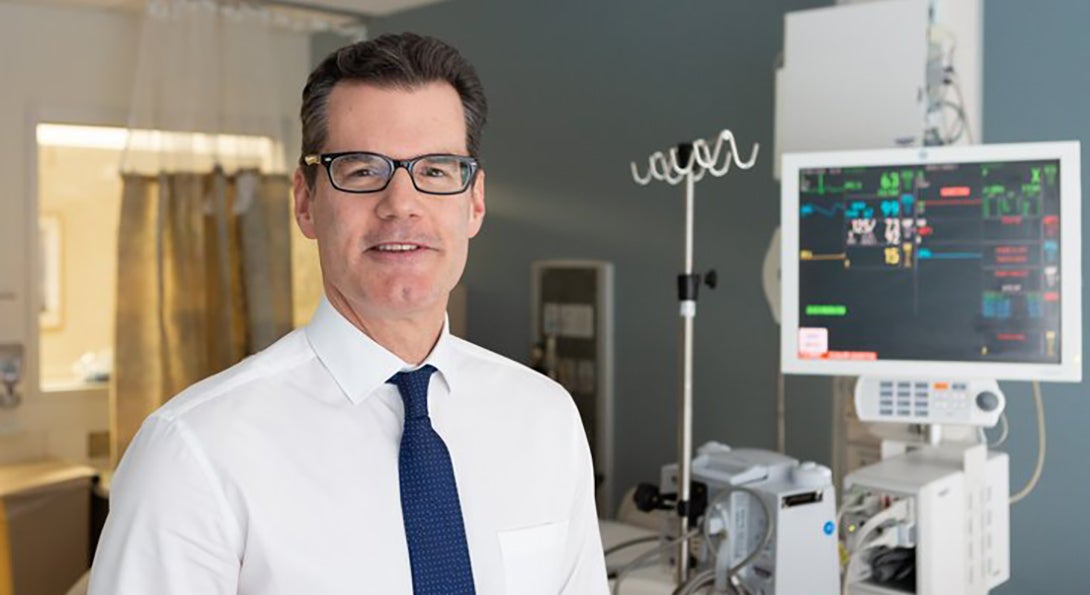Alumnus’ Research Says Compassion Key to Medical Care

Introduction
Treating patients with compassion seems almost like a cliché statement in healthcare. A new book, “Compassionomics: The Revolutionary Scientific Evidence that Caring Makes a Difference,” from alumnus Dr. Stephen Trzeciak, MPH in Health Policy and Administration ‘06 and a former resident in internal medicine and emergency medicine at UIC, makes the case that showing compassion for patients is much more than a nice thing to do. His study over a two-year period indicates that compassion produces tangible gains in patient outcomes and reductions in healthcare expenses.
“99.9 percent of people would agree that compassion is something we ought to do,” Trzeciak said. “Beyond the ethical and moral and emotional grounds, this book is providing the scientific evidence that compassion belongs in the science of medicine.”
Trzeciak, chair of the Department of Medicine at New Jersey’s Cooper Medical School of Rowan University, and a colleague reviewed the scientific evidence and found compassion impacts healthcare delivery in three main ways: strengthening quality of care, controlling cost of care and reducing employee burnout.
On the patient side, his research indicates compassion produces physical effects ranging from improved immune system function to better outcomes for diabetes patients. Compassion can modulate patients’ perceptions of pain and mitigate symptoms of depression and anxiety. From a safety perspective, compassion is associated with fewer medical and surgical errors.
“When I started medical school, the thinking was that we weren’t supposed to get too close to patients, that a close relationship could predispose you to getting burned out,” Trzeciak said. “We found that the preponderance of evidence published in the medical literature supports the exact opposite.”
His research suggests staff without compassion are the most likely to experience burnout from stress. He believes the human connection of health care is a positive fulfilling experience that builds resilience among healthcare providers.
His research also found compassion for patients is associated with lower discretionary resource use, including fewer diagnostic tests, fewer unnecessary referrals to specialists and reduced admissions to hospitals.
While the benefits of compassion are clearly outlined, Trzeciak stresses that compassion needs to be viewed as something deeper than “doing the right thing” or treating patients kindly. His definition of compassion comes from neuroscience studies that indicate compassion and empathy are distinctly different brain functions. Empathy – detecting, feeling, and understanding another’s pain and suffering – activates the pain centers of the brain, while compassion – taking action to help alleviate another’s pain or suffering – activates the parts of the brain associated with affiliation and positive affect.
“You can have empathy through a one-way mirror but you can’t have compassion, because compassion requires taking action” Trzeciak said. “However, empathy is vital, because if you can’t detect pain or suffering, you wouldn’t take action.”
Trzeciak says healthcare administrators can take tangible steps to build compassionate environments. While some people may be predisposed to act compassionately, he says abundant scientific data indicates compassionate behaviors can be learned. Formal training in compassionate behavior, along with an understanding of the positive outcomes compassion generates, can build shifts in mindsets that lead healthcare workers to prioritize compassion.
“Every healthcare provider would agree that we ought to treat patients with compassion, but it’s not something administrators can mandate,” Trzeciak said. “Once healthcare providers see the evidence and realize that there are measurable benefits of compassion, it makes them want to get better at compassion every day.”